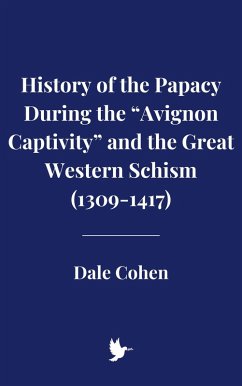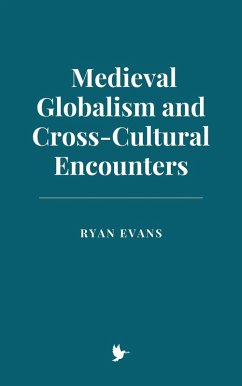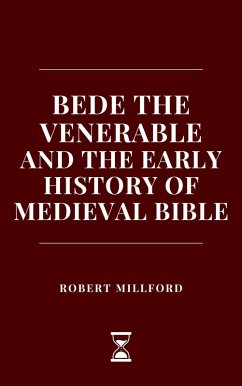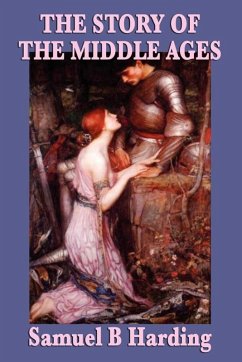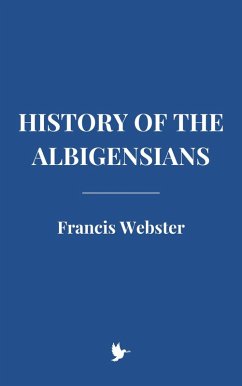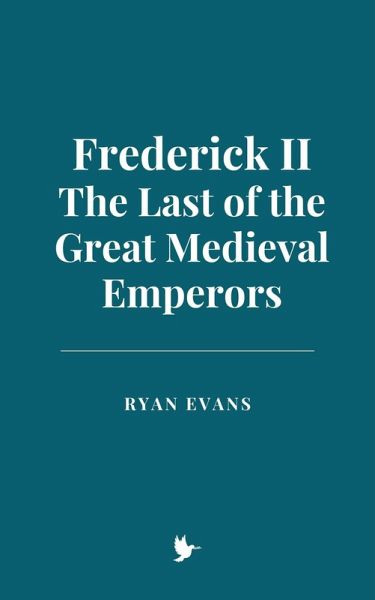
Frederick II: The Last of the Great Medieval Emperors (eBook, ePUB)

PAYBACK Punkte
0 °P sammeln!
Frederick II (1194-1250), Holy Roman Emperor and King of Sicily, stands as one of the most compelling figures of medieval European history. His reign was marked by a visionary ambition to create a centralized, cosmopolitan empire governed by law, culture, and reason. Known as Stupor Mundi, the "Wonder of the World," Frederick II's intellectual curiosity and political achievements earned him both admiration and enmity. This book explores the life, reign, and legacy of Frederick II, examining his multifaceted role as a ruler, intellectual, and military leader. His court in Palermo became a vibra...
Frederick II (1194-1250), Holy Roman Emperor and King of Sicily, stands as one of the most compelling figures of medieval European history. His reign was marked by a visionary ambition to create a centralized, cosmopolitan empire governed by law, culture, and reason. Known as Stupor Mundi, the "Wonder of the World," Frederick II's intellectual curiosity and political achievements earned him both admiration and enmity. This book explores the life, reign, and legacy of Frederick II, examining his multifaceted role as a ruler, intellectual, and military leader. His court in Palermo became a vibrant hub of scientific and cultural exchange, bringing together scholars from Christian, Muslim, and Jewish backgrounds, and his legal reforms in Sicily, embodied in the Constitutions of Melfi (1231), sought to diminish the power of the aristocracy and establish centralized governance based on justice and meritocracy.
Frederick's reign, however, was also characterized by intense conflicts, particularly with the papacy. His long-running feud with Popes Gregory IX and Innocent IV culminated in multiple excommunications, casting him as both a political threat and, to some, a heretical figure. Despite his diplomatic successes-most notably, the peaceful acquisition of Jerusalem during the Sixth Crusade-Frederick's ambitions were continually undermined by rebellions in Italy and Germany, the resistance of the Lombard League, and papal opposition. His death in 1250 marked the beginning of the collapse of the Hohenstaufen dynasty and the fragmentation of the Holy Roman Empire.
While Frederick's political aspirations were ultimately thwarted, his cultural and intellectual legacy endured. He contributed significantly to the revival of classical learning, the promotion of scientific inquiry, and the development of legal systems in medieval Europe. His reign symbolized both the potential and the limitations of medieval kingship, balancing military power with intellectual curiosity and religious tolerance. This book traces the evolution of Frederick's image from the medieval period, where he was revered as an enlightened ruler by some and reviled as a heretic by others, to the modern era, where he is remembered as one of the last great medieval emperors who bridged the gap between the medieval and Renaissance worlds.
Frederick's reign, however, was also characterized by intense conflicts, particularly with the papacy. His long-running feud with Popes Gregory IX and Innocent IV culminated in multiple excommunications, casting him as both a political threat and, to some, a heretical figure. Despite his diplomatic successes-most notably, the peaceful acquisition of Jerusalem during the Sixth Crusade-Frederick's ambitions were continually undermined by rebellions in Italy and Germany, the resistance of the Lombard League, and papal opposition. His death in 1250 marked the beginning of the collapse of the Hohenstaufen dynasty and the fragmentation of the Holy Roman Empire.
While Frederick's political aspirations were ultimately thwarted, his cultural and intellectual legacy endured. He contributed significantly to the revival of classical learning, the promotion of scientific inquiry, and the development of legal systems in medieval Europe. His reign symbolized both the potential and the limitations of medieval kingship, balancing military power with intellectual curiosity and religious tolerance. This book traces the evolution of Frederick's image from the medieval period, where he was revered as an enlightened ruler by some and reviled as a heretic by others, to the modern era, where he is remembered as one of the last great medieval emperors who bridged the gap between the medieval and Renaissance worlds.
Dieser Download kann aus rechtlichen Gründen nur mit Rechnungsadresse in A, B, CY, CZ, D, DK, EW, E, FIN, F, GR, H, IRL, I, LT, L, LR, M, NL, PL, P, R, S, SLO, SK ausgeliefert werden.




